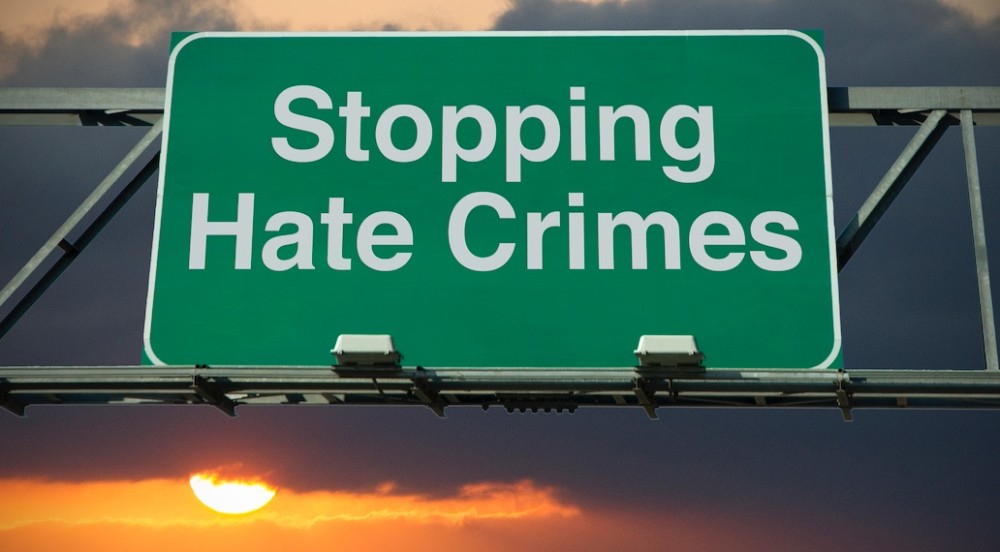The latest look at hate crime data from the FBI is concerning. Since 2020, hate crimes have surged across the United States, rising 44 percent in major cities. As instances of these sometimes violent acts continue to rise, the University of Houston has been tapped by the Houston Coalition Against Hate (HCAH) to guide community-based organizations in coming together to form a consolidated response. This network, made up of those on the front lines in leading communities through crisis, is united with one common goal: to reduce hate and encourage belonging.
“What I would like to see in the city of Houston, and it can begin with community-based organizations, is a collective response that demonstrates our intolerance of hate is more powerful than the intimidation that a perpetrator of a hate crime would try to propagate against an entire community,” says Aabha Brown. The clinical associate professor at the UH Graduate College of Social Work is the principal investigator of the specially commissioned Houston Coalition Against Hate report titled, “Building Hate Crime Response Capacity in Community Based Organizations.” Brown worked with colleagues at the school to produce the academic review, which includes recommendations for how community-based organizations can respond to hate-based incidents more effectively.
Research conducted by Brown and her UH colleagues shows that coordinated trauma support by community-based organizations requires a deep understanding of the impact of trauma on individuals, groups and communities. “This understanding must begin with an unwavering commitment to trauma and healing informed practices embedded in the organization’s culture and facilitated through training provided at all levels,” Brown tells EBONY. “Additionally, while establishing relationships with law enforcement can be challenging for many CBOs, these relationships are critical to supporting the trauma associated with a hate crime, often experienced by both individuals and communities.” Lastly, Brown explains that shared funding models for training and organizational capacity building can encourage collaboration and foster better coordination of services in the aftermath of a hate crime.
Though there is data that supports that hate crimes are on the rise, the underreporting of these events makes assessing the problem more challenging. Currently, reporting hate crimes to the FBI is voluntary for police departments. Brown says this influences the number of departments reporting hate crimes and has made it difficult to accurately track the instances of hate-based violence in Houston and around the country. Though Houston is the fourth largest city in the nation with just over 90 law enforcement organizations working in the metroplex, from 2008 - 2018, many cities in Harris County, of which Houston is a part, reported zero hate crimes over the 11–year period.
Also contributing to the underreporting of these events is difficulty in identifying a hate crime when there is no physical evidence or evidence provided by the victim that the crime was identity-based. “This relies on officers being trained on the nuances of hate crime and asking related questions when interviewing victims, and training varies significantly among law enforcement organizations,” Brown says. She adds that victims also hesitate to report hate crimes for several reasons. They include shame and trauma associated with these types of crime, fear of retaliation from perpetrators, concerns about experiencing negative consequences from law enforcement when reporting as well as feeling a lack of confidence that anything meaningful will be done after reporting. “This constellation of factors impacts the underreporting that we see,” Brown asserts.
While reporting makes it difficult to understand just how widespread hate crimes are, Brown is clear that the recent data reflecting a surge in these acts aren’t likely influenced by an increase in reporting. Instead, she attributes it to racist and divisive political rhetoric. “This type of rhetoric creates an environment of permission and impunity for those that perpetrate hate crimes,” Brown contends. “Additionally, leaders that attack federal law enforcement discredit those institutions that have the most power and authority to prosecute hate crime.”
Though a large problem in Houston, Brown says the lack of reporting is not unique to the city, nor are the hurdles in properly addressing the problem. “Many of the challenges related to addressing hate crime experienced in Houston may be mirrored in other large urban cities including inconsistent hate crime laws, lack of training for law enforcement and lack of understanding of hate crime by victims,” says Brown. “Houston is among one of the most racially and religiously diverse cities in the nation, which both makes it particularly vulnerable to hate crime and also uniquely able to unify communities across different identities. This diversity allows the city to design responses to hate that is inclusive, significant and replicable at various scales.”
Hate crimes, by design, are meant to impact and intimidate not only the victim of the crime but also anyone that identifies or empathizes with the victim. Brown believes that with a uniform response to hate, communities will be able to leverage multiple resources and assets resulting in a shared effort related to such a response. “It also provides a community with the opportunity to respond to the intimidation of hate crime with an equal, if not greater, sentiment of intolerance for hate and the victimization intended with these crimes,” Brown says. “A uniform response can strengthen a sense of safety and support necessary to heal from hate.”













